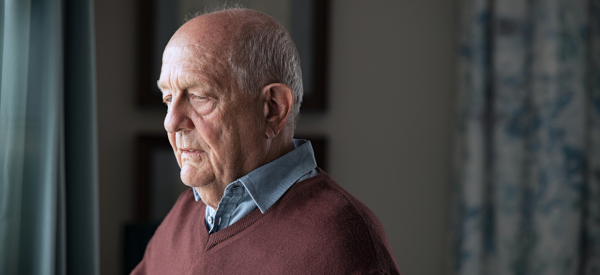No matter what side of the fence a candidate’s opinions lie when it comes to military action, supporting this nation’s veterans should be a priority. Those who have protected our country deserve our utmost respect and gratitude, and in the following video, AARP tells th Model Railroad Print Out Buildings e story of two young war veterans who continue to serve by building houses for fellow vets. The story is an uplifting one and one that we here at Freedom Home Care would love to see more of. We hope you enjoy it. http://www.youtube.com/watch?v=rpsXpFhiXkM&feature=plcp Model Railroad Print Out Buildings zp8497586rq
Read More
Posts by Freedom Home Care
Tapping into the senior tech trend
In the past, tech-savvy wasn’t necessarily a descriptor attached to those in the 65-plus age group. That term was reserved for the younger generations who were delving into the latest and greatest online tools. That is, until now. As we here at Freedom Home Care have mentioned in previous blogs, older Americans are taking the Internet for a test drive, and what they’re finding is that it’s an incredibly valuable way to stay in touch with family members and friends – and the entire world around them. For seniors who haven’t already hopped on the World Wide Web express, there
Read More
7 ways for seniors to treat dry mouth
As we here at Freedom Home Care have discussed in previous blog posts, there are many changes that individuals will face as they grow older. Although some of those changes are quite expected, many of the signs of aging will come as a surprise. Dry mouth is one of these unforeseen items. spy apps for android “If [seniors] have a chronic disease managed by medications, one of the side effects is dry mouth,” explained Dr. Marsha A. Pyle, director of the Training Center for Geriatric Oral Health and associate dean of Education at the Case School of Dental Medicine in
Read More
FHC takes a moment for Mental Illness Awareness Week
This week, between Oct. 7 and Oct. 13, marks a time for all of us to increase our understanding and sensitivity for those suffering from mental illness. According to the National Alliance on Mental Illness, Mental Illness Awareness Week was established in 1990 by the U.S. Congress. It was set in place to recognize the efforts that the NAMI places on mental health advocacy. Mental Illness Awareness Week
Read More
Spotlight on conditions similar to rheumatoid arthritis
Rheumatoid arthritis, the inflammation of joints and surrounding tissues, is a common condition that many elderly suffer from. Unfortunately, there are many conditions that exhibit similar symptoms to RA, which makes it difficult to diagnose. Therefore, it’s important to seek a doctor’s advice before making assumptions. According to HealthCentral.com, knowing the similarities and differences of these conditions can be beneficial in ensuring that the proper treatment is delivered. The website, which aims to empower millions of people to improve and take control of their health and well-being, pinpointed seven conditions that are sometimes mistaken for RA. The editors there went
Read More
Consider a sundae this Sunday for your aging loved one
Often times, we here at Freedom Home Care focus our blogging efforts on ways for elderly individuals to stay safe and healthy while living at home. A lot can change as we grow older, and with that change comes the need to adopt new habits. Adjustments to diet and nutrition might not have to come with quite as many sacrifices, however, as far as frail elderly are concerned. According to AgingCare.com, “there is a misperception that frail elderly peo diflucan ple should adhere to the same low-fat, low-calorie diet that is recommended for the general population.” Dr. Amy Ehrlich, associate
Read More
Taking advantage of Medicare – in the here and now
After last night’s presidential debate, it’s clear to see that the future health care of America’s senior population is at a crossroads. Despite the uncertainty, we here at Freedom Home Care have decided to focus today’s blog post on the here and now. adobe acrobat download Although some may see flaws in the current system, there are many benefits for elderly individuals to take advantage of. And cheap flagyl so is especially the case, considering the number of Medicare beneficiaries that able to receive annual flu vaccinations. Medicare is taking concerted efforts to limit the spread of the annual flu
Read More
Four potential home modifications for getting around in a wheelchair
For many aging individuals living alone, a wheelchair can serve as a safe way to get around the house. Loss of balance and strength are common signs of aging, and therefore, a wheelchair will often become a necessary purchase at some point in time. Unfortunately, bathroom doors are rarely wide enough for a wheelchair or even a walker to pass through. To accommodate the aging loved one’s in our lives, CaregiversHome.com made a few suggestions as to how to offer increased access into narrow passages, specifically for those to the bathroom or bedroom. Here are the four tips from CaregiversHome.com
Read More
Five methods to close the door on Alzheimer's stigma
Every day major strides are made in the efforts aimed at understanding Alzheimer’s disease. The unfortunate but honest truth, however, is that there is still a myriad of misconceptions surrounding the condition. Because of that confusion, those suffering from Alzheimer’s often feel alienated and misunderstood. Depression often goes hand in hand with the already difficult side effects of Alzheimer’s. But some of those feelings could be alleviated by simply talking about the disease with family members and friends. To help open the lines of communication and close the door to depression, current and former members of the National Alzheimer's Association Early-Stage
Read More
Tips to winterize a home for our aging loved ones
Although fall is just now beginning to show us its true colors, it’s not too early to start thinking about winter weather conditions. And that is especially true when there are aging loved in our lives who are living alone. Living alone during the coldest part of the year can be difficult and even dangerous if the proper preparation isn’t set into motion. According to AgingParentRescue.com, normal everyday tasks become harder for seniors living alone when temperatures drop. Likewise, worries about frozen pipes and the expense to keep the house warm can be incredibly stressful. Therefore, it is imperative to
Read More



